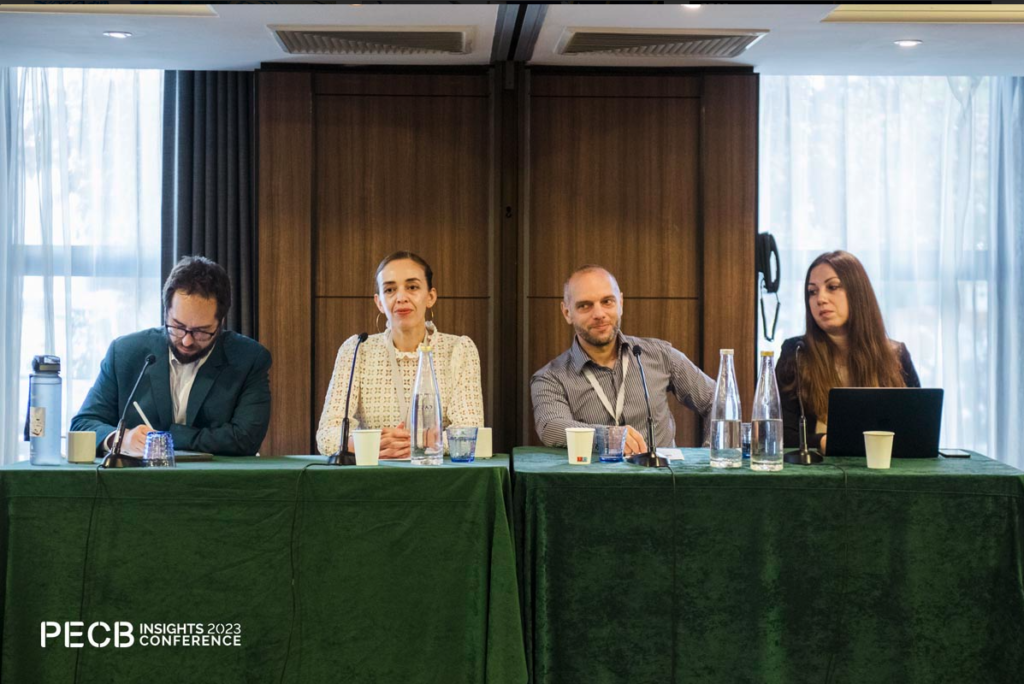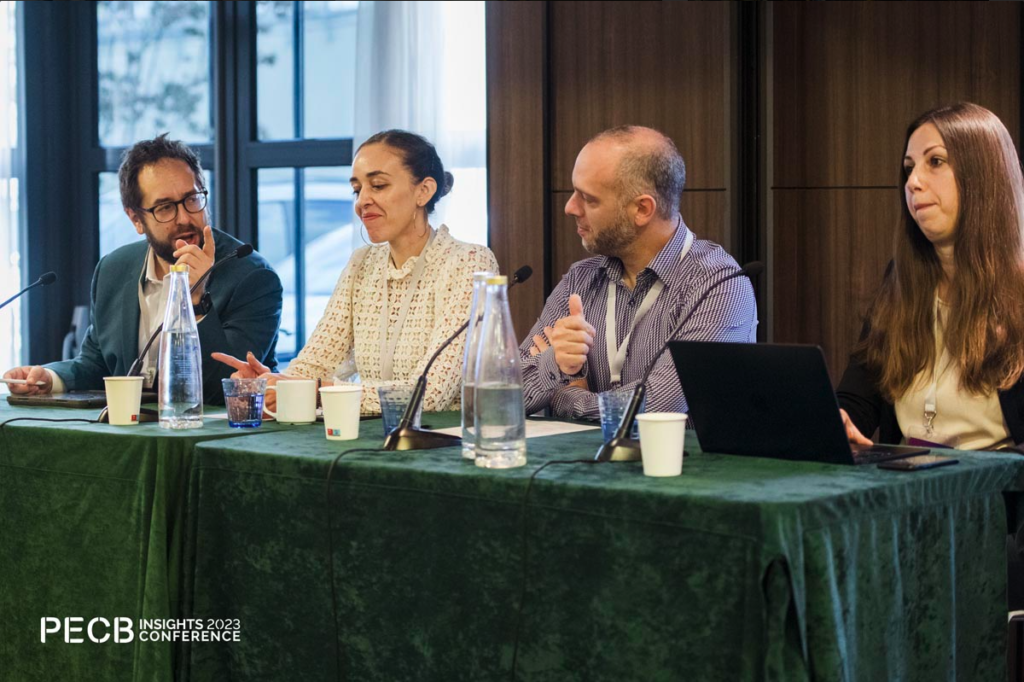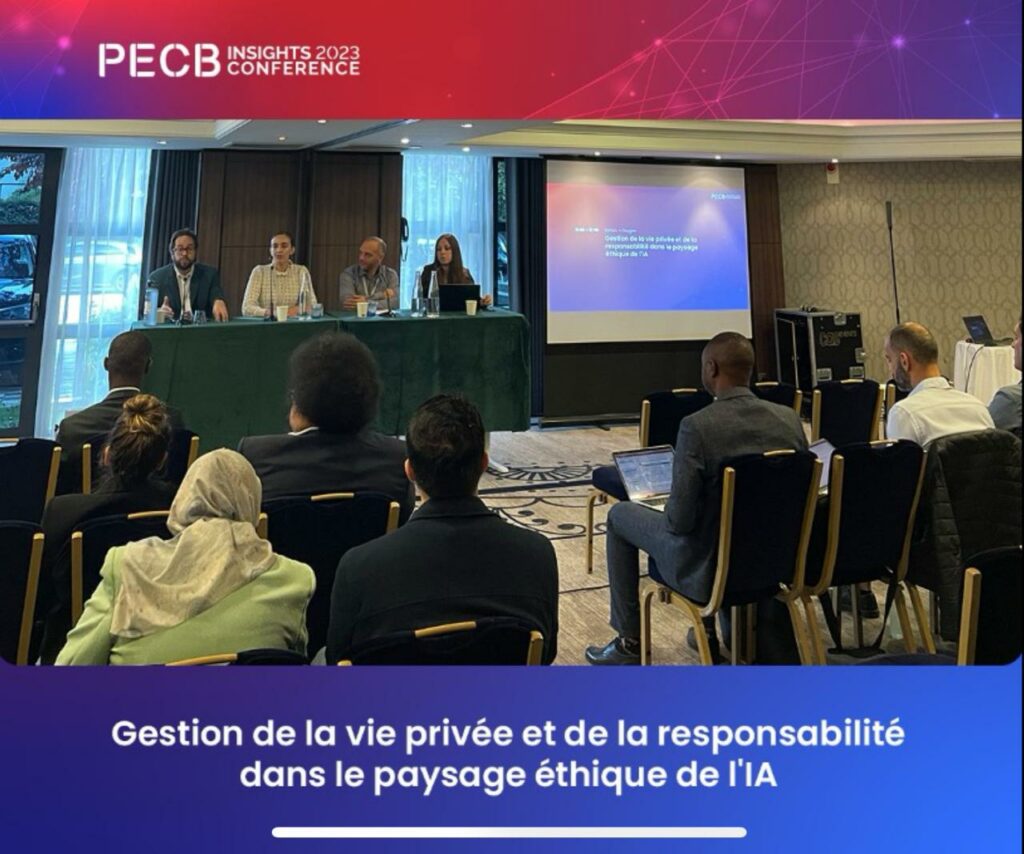- My company is not established in the EU. Should I really worry about the EU Data Act applying to my company?
- What are the operational impacts of the EU Data Act on my products‘ interface?
- My products are already on the market, can I still provide them as I am today?
- What data is in the EU Data Act scope?
- Does the EU Data Act provide for a harmonized framework for blockchain-based smart contracts?
- Who can request the sharing of data?
- How should data be made available?
- Are there any limitations on how the data can be shared?
- Can I invoke intellectual property right to forego the data sharing?
- Should the data be made available to public entities as well?
- Will I need to update my contracts as well?
- Will the data be required to stay in the European Union?
- When will all this become an operational reality for me?
- What are the EU Data Act penalties?
14 Questions about the EU Data Act
August 27th, 2024 | Posted by in Artificial Intelligence | Blockchain | Europe | IT | Legislation - (0 Comments)EU AI Act [FULL TEXT]
May 21st, 2024 | Posted by in Artificial Intelligence | Europe | Legislation - (0 Comments)
Regulation (EU) 2024/1689 of the European Parliament and of the Council of 13 June 2024 laying down harmonised rules on artificial intelligence and amending Regulations (EC) No 300/2008, (EU) No 167/2013, (EU) No 168/2013, (EU) 2018/858, (EU) 2018/1139 and (EU) 2019/2144 and Directives 2014/90/EU, (EU) 2016/797 and (EU) 2020/1828 (Artificial Intelligence Act)
(Text with EEA relevance)
(more…)Acquiring an AI Company
April 14th, 2024 | Posted by in Artificial Intelligence | Non classé | Press | World - (0 Comments)A Practice Note highlighting issues to consider when counseling a prospective buyer of an AI company. This Note discusses the primary due diligence issues relating to AI and machine learning (ML) and strategies to mitigate or allocate risks in the context of an M&A transaction. This Note is also helpful for AI company targets that seek to anticipate potential issues. In this Note, the term AI company refers to a company involved in the research, development, or monetization of a product or service that is primarily powered by an ML algorithm or model that creates functionality or utility through the use of AI.
Read the full article on Practical Law, written in collaboration with by Annette Becker, Alex V. Imas, Jake Bernstein, Mark H. Wittow, Melanie Bruneau, Marion Baumann, Kenneth S. Knox, Julie F. Rizzo, Cameron Abbott, Thomas Nietsch, and Nicole H. Buckley.
Legal 500 Rankings 2024 – Industry Focus: IT & the Internet – Tier 3 – France
March 27th, 2024 | Posted by in Artificial Intelligence | internet | IT | Non classé | Rankings | Software - (0 Comments)K&L Gates LLP covers a myriad of IT and internet issues, from GDRP compliance to contract negotiation. The firm is notable for its expertise in IP and data protection matters, as well as, increasingly, AI, NFT and blockchain issues. The practice is led by Claude-Etienne Armingaud, who is dual-qualified in France and the US, and is consequently well placed to handle multi-jurisdictional transactions.
Practice head(s): Claude-Etienne Armingaud
(more…)🇺🇸 Regulating AI Part-IV: The EU AI Ac – The Expected International Impacts of the First Comprehensive AI Regulation
February 19th, 2024 | Posted by in Artificial Intelligence | Conference | Europe | Intelligence Artificielle | Legislation | Privacy - (0 Comments)Part IV of our series “Regulating AI: The Potential Impact of Global Regulation of Artificial Intelligence” will focus on recent developments in general availability of AI and how generative AI solutions are leading regulators, at a global level, to consider legal frameworks to protect both individuals affected by AI and digital sovereignty.
The program will feature a panel addressing the EU AI Act, on which a preliminary political agreement was reached last December and unanimously approved by the ambassadors of the 27 countries of the European Union on 2 February 2024, prior to its upcoming final votes.
Like the GDPR before it, the EU AI Act will be a trailblazing piece of legislation which will impact companies at global level.
Our panelists will discuss the consequences of the EU AI Act on companies contemplating the provision of AI solutions in the EU market or leveraging AI in the EU, with a special focus on non-EU companies.
Additional topics in our Regulating AI — The Potential Impact of Global Regulation of Artificial Intelligence series include:
- Part I – 13 September 2023 (EU / U.K.) – View Recording
- Part II – 7 December 2023 (Asia-Pacific Region: China, Hong Kong, Singapore, Japan) – View Recording
- Part III – 12 December 2023 (United States)
Register or watch the replay here.
Access the full text of the EU AI Act here.
ICO Introduces Consultation Series on Data Protection and Generative AI
February 13th, 2024 | Posted by in Artificial Intelligence | Europe | IT | Non classé | Privacy - (0 Comments)The Information Commissioner’s Office (ICO) recently launched a consultation series on how data protection laws should apply to the development and use of generative AI models (“Gen AI”). In the coming months, the ICO will publish further views on how to interpret specific requirements of UK GDPR and Part 2 of the DPA 2018 in relation to Gen AI. This first part of the consultation focusses on whether it is lawful to train Gen AI on personal data scraped from the web. The consultation seeks feedback from stakeholders with an interest in Gen AI.
As outlined by the ICO, web scraping will involve the collection and processing of personal data, which may not have been placed online directly by the data subjects themselves. To comply with the UK GDPR, Gen AI developers would need to ensure there is a valid lawful basis for their processing under UK GDPR, as well as comply with the relevant information requirements pertaining to indirect personal data collection.
For the first part of the consultation series, the ICO published a policy position on the lawful basis for training Gen AI models on web-scraped data which can be found here. More specifically, this consultation focusses on the ‘legitimate interest’ lawful basis under art. 6(1)(f) UK GDPR and the ‘three-part’ test that a data controller must pass to meet the legitimate interest basis (a so-called Legitimate Interest Assessment). The ICO has considered various actions that Gen AI developers could take to meet this three-part legitimate interest test to guarantee that the collection of training data through web scraping, i.e. processing of data, is complaint with the principles of UK GDPR. The ICO would now like to hear from relevant stakeholders on their view of the proposed regulatory approach and the impact this would have on their organisation. A link to the survey can be found here.
The deadline to submit a response is 1 March 2024.
First publication: K&L Gates Cyber Law Watch blog with Sophie Verstraeten
🇺🇸 Onetrust: AI Governance Masterclass – The EU AI Act
February 1st, 2024 | Posted by in Artificial Intelligence | Conference | Europe | Legislation | Non classé | Privacy - (0 Comments)
Join our session as we explore the implications of the EU AI Act. In this webinar, we’ll:
- Break down the four levels of AI risk under the AI Act
- Discuss legal requirements for deployers and providers of AI systems
- Provide a playbook for deployers and providers to accelerate EU AI Act compliance
Featured speakers
Yücel Hamzaoğlu
Partner
HHK Legal
Melike Hamzaoğlu
Partner
HHK Legal
Claude-Étienne Armingaud
Partner
KL Gates
Noshin Khan
Ethics & Compliance, Associate Director
OneTrust
Harry Chambers
Senior Privacy Analyst
OneTrust
New EU AI Rules Will Have Global Impact
January 16th, 2024 | Posted by in Artificial Intelligence | Europe | Interview | IT | Legislation | Press - (0 Comments)Quoted in Agenda article “New EU AI Rules Will Have Global Impact“:
The scope of the EU AI Act will apply to all companies whose AI systems are used or affect EU-based individuals, according to Claude-Etienne Armingaud, a partner in K&L Gates’ Paris office and a member of the law firm’s technology transactions and sourcing practice group.
Due to its breadth, global companies developing AI systems, most of which are headquartered either in the U.S. or in China, will face two options: “Get in line with the EU AI Act or abstain from the EU market,” Armingaud said.
Some companies threatened to exit the European market after the EU’s General Data Protection Regulation, or GDPR, became effective in 2018, but many didn’t actually follow through, according to Armingaud.
“So, without a doubt, all companies dabbling in AI will need to comply if they truly want to remain global,” he said.
Agenda – New EU AI Rules Will Have Global Impact
🇫🇷 Managing Privacy And Accountability In The AI Ethical Landscape
October 5th, 2023 | Posted by in Artificial Intelligence | Conference | Privacy - (0 Comments)This panel session will focus on the growing concern over the ethical use of Artificial Intelligence (AI) and its impact on privacy. The panelists will discuss the role of accountability in developing responsible AI practices and the potential risks of AI systems when not properly regulated. They will also explore the importance of transparency and the need for data privacy regulations in the development and deployment of AI technologies. The session will provide insights into best practices for AI governance and how organizations can ensure the ethical use of AI while still benefiting from its potential.
Co-Panelists:







#AI #ArtificialIntelligence #gdpr #ethics #dataprotection #regulation #insights23 #pecb #Privacy #Accountability
Access the full text of the EU AI Act here.
🇺🇸 Regulating AI: The Potential Impact of Global Regulation of Artificial Intelligence
September 13th, 2023 | Posted by in Artificial Intelligence | Conference - (0 Comments)This series of webinars will address the potential impacts of artificial intelligence (AI) regulations on business across the globe. Recent developments in general availability of AI and generative AI solutions are leading regulators, at a global level, to consider legal frameworks to protect both individuals affected by AI and digital sovereignty. Our panelists will address these potential regulatory developments, as well as the expected timeline for these changes, region by region.
Our first panel will feature a discussion focused on current and future regulatory requirements on the AI industry throughout the EU and the UK. With the language of the EU’s Al Act heading into its trialogue, it is even more important for stakeholders to understand the EU’s approach and prepare for the potential impact of this regulation in Europe, UK, and beyond. The panelists will address key questions, such as:
- What new undertaking will be bearing on the stakeholders in this industry?
- Will government regulation be “technology neutral”?
- Could the various frameworks lead to conflicts for local compliance efforts?
- Will a requirement for an AI system to explain its thinking or provide substantive sources for all results have a deleterious impact on its ability to “think” independently?
- Is it too late for stakeholders to have a say in these expected frameworks?
Claude-Étienne Armingaud | PARTNER | PARIS
Giovanni Campi | POLICY DIRECTOR | BRUSSELS
Jennifer Marsh | PARTNER | LONDON
Register here: K&L Gates Website
Access the full text of the EU AI Act here.
